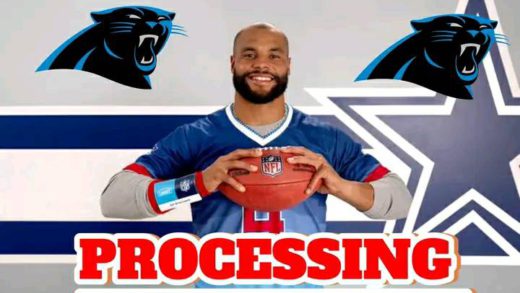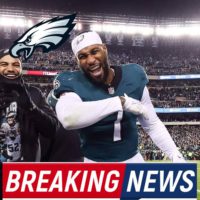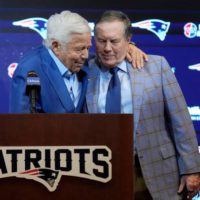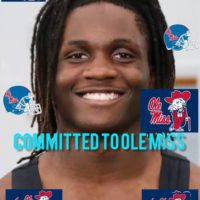Jim Larrañaga, the venerable head coach of the University of Miami Hurricanes basketball team, shocked the college sports world when he announced his sudden decision to step down after more than a decade at the helm. Known for his tactical genius and ability to inspire loyalty in his players, Larrañaga’s departure was expected to spark speculation about his health, family, or retirement plans. However, the actual story that unfolded in the weeks following his announcement was far more complex and controversial, shaking the foundation of a program he had painstakingly built into a national powerhouse.
The Hurricanes were coming off a remarkable season, with a deep run in the NCAA tournament that saw them reach the Final Four. Miami fans were optimistic about the team’s prospects for the coming year, buoyed by a mix of returning veterans and highly-touted recruits. Larrañaga, celebrated for his calm demeanor and basketball IQ, seemed poised to lead the team to new heights. That’s why his announcement on a humid July morning—delivered via a hastily arranged press conference—sent shockwaves through Coral Gables and beyond.
“After careful consideration and discussions with my family, I have decided to step down as head coach of the Miami Hurricanes,” Larrañaga began, his voice steady but his expression uncharacteristically grave. “This was not an easy decision, but it is one I believe is in the best interest of the program and my personal life.”
Initially, the statement seemed innocuous, even mundane. Many speculated that the 74-year-old coach was simply ready to retire after a storied career. Yet whispers of unrest began circulating almost immediately. Unnamed sources within the athletic department hinted at a brewing scandal, and local media outlets reported that Larrañaga’s departure might be connected to internal conflicts within the university’s administration.
The first real crack in the facade appeared when a group of players—led by star forward Malik Carter—issued a cryptic statement on social media just hours after Larrañaga’s press conference. “Truth always comes out,” Carter’s tweet read, accompanied by a pair of ominous-looking eye emojis. Fellow teammates quickly followed suit, sharing similar messages and fueling speculation that the coach’s exit was anything but amicable.
Journalists began digging, and what they unearthed painted a picture of mounting tensions between Larrañaga and the university’s athletic director, James Stokes. According to multiple sources, Larrañaga had clashed with Stokes over a series of decisions related to NIL (Name, Image, and Likeness) deals for players. The NIL era had transformed college sports, allowing athletes to profit from endorsements and sponsorships. While Larrañaga had publicly supported his players’ rights to earn money, behind the scenes, he had reportedly expressed concerns about the impact on team cohesion and focus.
“Jim felt like the NIL stuff was getting out of hand,” said one source close to the program. “He’d always been about building a team-first culture, and he worried that some of the younger players were more focused on social media followers and endorsement deals than on basketball.”
The tipping point, according to insiders, came during a high-profile recruiting battle for five-star point guard Bryce Mitchell. Mitchell’s commitment to Miami had been considered a done deal, but the situation unraveled when another school reportedly offered him a more lucrative NIL package. Stokes, eager to land the prized recruit, allegedly pressured Larrañaga to get more involved in brokering NIL opportunities—a move the coach resisted.
“Jim didn’t want to play that game,” the source continued. “He thought it was a slippery slope and told Stokes as much. But Stokes saw NIL as the future and wanted Jim to adapt.”
The conflict over NIL wasn’t the only issue. Reports surfaced of a strained relationship between Larrañaga and several assistant coaches, some of whom had been hired at Stokes’ urging. One assistant, who spoke on condition of anonymity, described a “toxic” atmosphere in the coaching staff, with factions forming and trust eroding.
“It stopped feeling like Jim’s program,” the assistant said. “There were too many cooks in the kitchen, and not everyone had the same vision.”
As speculation mounted, Larrañaga’s longtime supporters rallied to his defense. Former players, including NBA stars who had played under him at both Miami and George Mason, spoke out about the coach’s integrity and leadership. “Coach L is one of the best men I’ve ever met,” tweeted Shane Battier, a Miami alumnus and current NBA executive. “If he’s stepping down, there’s more to the story, and I’m not sure it’s his fault.”
The controversy reached a boiling point when The Miami Herald published an investigative report alleging that the university’s handling of NIL deals had skirted NCAA guidelines. According to the report, Stokes had authorized payments to players that were disguised as “consulting fees” through a third-party agency. While the NCAA had relaxed its rules on athlete compensation, the use of such intermediaries remained a legal and ethical gray area.
Larrañaga’s departure, the article implied, might have been a preemptive move to distance himself from the fallout of a potential investigation. The university denied any wrongdoing, but the damage was done. Alumni and boosters demanded answers, and the NCAA quietly began reviewing Miami’s NIL practices.
In the weeks that followed, Miami’s basketball program struggled to regain its footing. Interim head coach Eric Davis, Larrañaga’s top assistant, was thrust into the spotlight and tasked with navigating a team now divided by loyalty to their former coach and uncertainty about the future. Several recruits decommitted, and rumors swirled that key players, including Malik Carter, were considering transferring.
Larrañaga, for his part, retreated from the public eye. In a rare interview with a local radio station, he maintained that his decision to step down was “personal” and declined to comment on the allegations surrounding the program. “I’ve always tried to do what’s best for my players and my family,” he said. “That’s all I’m focused on right now.”
Yet the controversy refused to fade. A Freedom of Information Act request filed by investigative reporters revealed emails between Larrañaga and Stokes that highlighted their disagreements over NIL policy. In one exchange, Larrañaga wrote: “I’m deeply concerned about the direction we’re heading. This isn’t what college basketball is supposed to be about.”
The revelation reignited debate about the broader impact of NIL on college sports. Critics argued that the system had created an uneven playing field, favoring schools with deep-pocketed boosters while sidelining traditional values of amateurism and teamwork. Supporters countered that athletes deserved to profit from their talents, especially in a multi-billion-dollar industry that had long exploited them.
As the season began without Larrañaga, Miami’s performance on the court mirrored the chaos off it. The team struggled to find its identity, and attendance at home games dipped as fans expressed their frustration with the program’s leadership. Meanwhile, whispers persisted that Larrañaga might resurface elsewhere, perhaps as an analyst or even a coach for a professional team.
By year’s end, the Hurricanes had missed the NCAA tournament for the first time in nearly a decade. The fallout from Larrañaga’s departure continued to reverberate, serving as a cautionary tale about the unintended consequences of college sports’ rapid evolution.
For Miami fans, the lingering question remained: Was Jim Larrañaga a victim of circumstance, an idealist who couldn’t reconcile his values with a changing landscape? Or had he simply lost control of a program he could no longer manage? In the absence of clear answers, the legacy of one of college basketball’s most respected coaches hung in the balance, overshadowed by the controversy that marked his exit.







